by cidaut | Oct 22, 2019 | Sin categoría
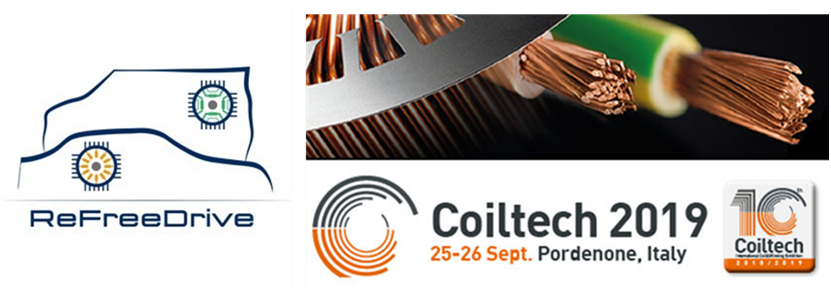
Coiltech hosts the World Magnetic Conference, chaired by Prof. Marco Villani (University of L’Aquila one of the partner of ReFreeDrive project), the biggest conference in its field. WMC offers both visitors and exhibitors and excellent opportunity to update one’s knowledge about innovation of materials, methods and technologies for further improvement of efficiency in production, distribution, transformation and consumption of electrical energy.
ReFreeDrive’s partners had an excellent experience last year at Coiltech 2018. For this reason, they have met again at Coiltech 2019. During the Conference the partners presented the most relevant technical results of the project that is starting its third and last year. The session, specially dedicated to the ReFreeDrive project, started with the general overview of the project presented by Cidaut as Coordinator. After the introduction, Jaguar Land Rover, Motor Design Limited, IFPEN, L´Aquila University, Breuckman and European Copper Institute explained some of the technical details of the project.
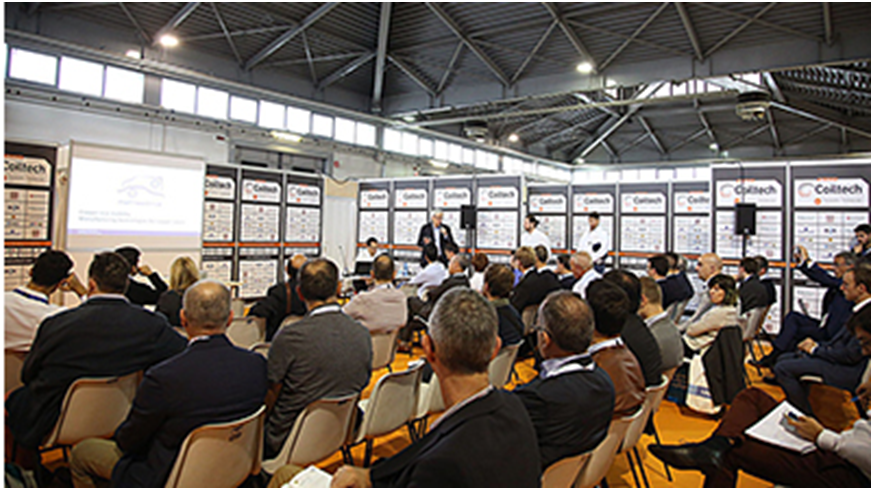
ReFreeDrive has been funded by the European Commission in the H2020 Frame Programme and it aims to avoid the use of rare earth magnet through the development of a next generation of electric drive trains, ensuring the industrial feasibility for mass production while focusing on the low cost of the manufacturing technologies.
by cidaut | Jul 19, 2019 | Materials
ReFreeDrive project reached half of its length last March. This means it was time to hold the Midterm review meeting. To this end, all project members and the Project Officer met last 22nd and 23rd of May in Brussels, at Aurubis facilities.

During the meeting, the main achievements of the project were noted, and the results of the different tasks carried out by each consortium member were discussed. At this point, the motor design stage is finished, so the results obtained give an accurate idea about what can be expected from the final prototypes. Fortunately, all projects KPIs and milestones are being successfully accomplished; hence our expectations remain the highest for the second half of the project.
In the following months the optimized motor designs for both configurations (induction and synchronous reluctance) and power levels (200kW and 75kW) will be manufactured and tested.
by cidaut | May 17, 2019 | Materials
Last March ReFreeDrive project, coordinated by CIDAUT, reached the half of its length. The ReFreeDrive project is focused on contributing to avoid the use of rare earth magnets through the development of a next generation of electric drivetrains, ensuring the industrial feasibility for mass production while focusing on the low cost of the manufacturing technologies.

ReFreeDrive project is expected to achieve an incremental reduction in total motor and power electronics system costs through optimised design for manufacture, increasing the performance of both electric motors and power electronics. Specifically, ReFreeDrive project aims at achieving a motor torque increase of 30% while halving motor losses, increasing power density in power electronics by 50% and reducing production costs around 15% against similar solutions (Reference: Tesla Model S60).
On the occasion of the 18 months since the beginning of the project, its partners met on 20th and 21st March at Brussels for a new General Assembly meeting. During the meeting, the tasks carried out by the partners during the last six months were reviewed, and the status of the different Work Packages was analysed in order to define actions for the second half of the project, when the 8 e-Drives (200kW and 75kW) will be manufactured and tested.
Also on these days CIDAUT attended the joint GV04 dissemination event, which took place in Brussels, too. The workshop presented the innovations that are currently being developed by three EU-funded projects under the European Green Vehicles Initiative (EGVI): ModulED, ReFreeDrive and DRIVEMODE. This event allowed exploring synergies between the three projects in order to maximize the outcome of the innovations under development within each one of them.

More than 100 people showed interest in the event and around 75 of them attended the workshop (36 people belong to the project consortia, while 68 people are external audience), many of them belonging to leading edge organizations in the field of electric drivetrain design and innovation.
by cidaut | Oct 22, 2018 | Sin categoría
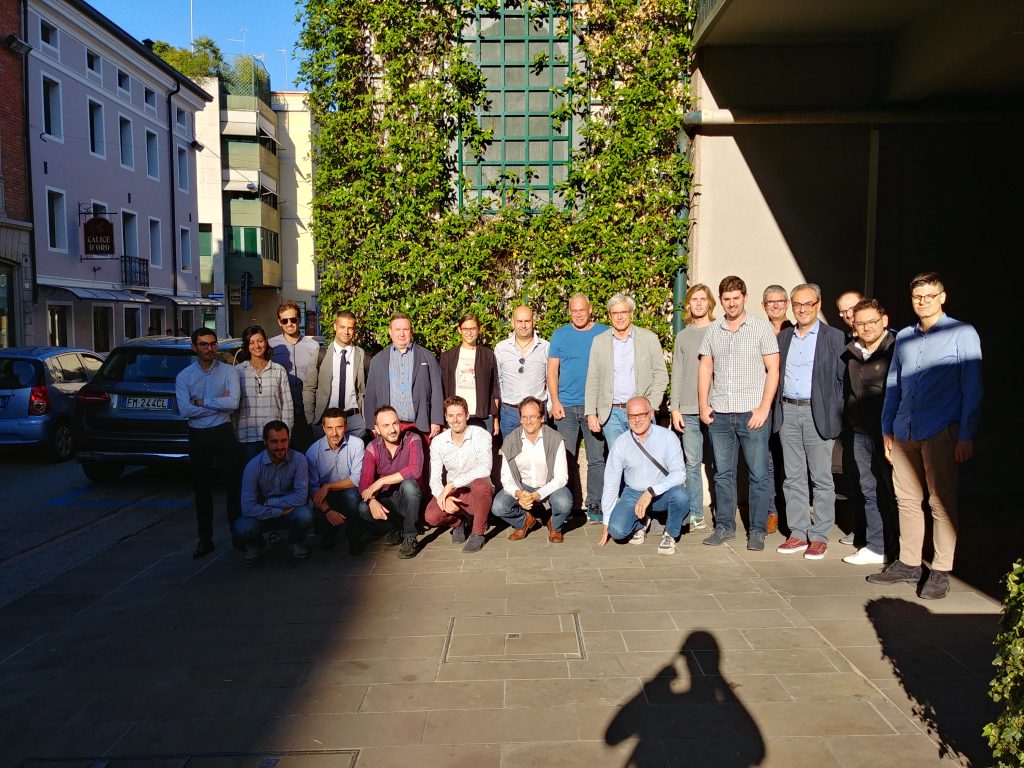
The ReFreeDrive project partners meet last September to hold the 12 month General Assembly Meeting at Pordenone, Italy. During this meeting, the three technologies featured in the project (Induction Machine, Permanent Magnet Assissted Synchronous Reluctance and Pure Synchronous Reluctance) presented their latest results and discussion over the upcoming actions and tasks took place. This first year ReFreeDrive has been focused on preliminary designs and assessments, as well as initial designs for the power electronics. In the upcoming year, designs will be finalized and the manufacturing of 8 e-Drives will take place, it will be an exciting period with many results!
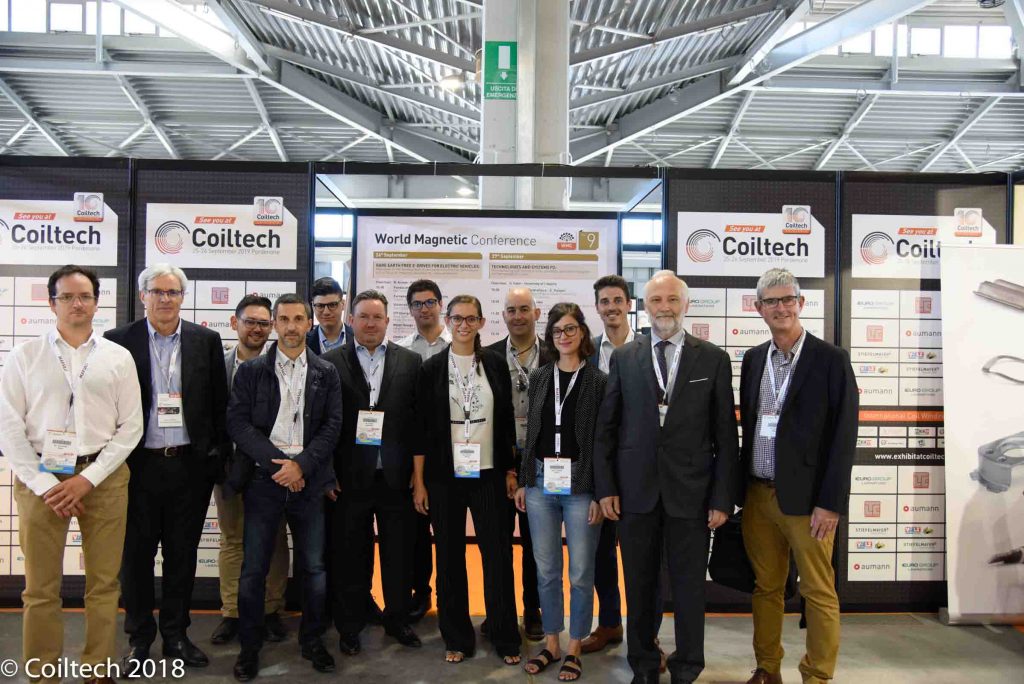
The third day, a dissemination session dedicated to ReFreeDrive was held within the World Magnetic Conference, taking place in parallel to the Coiltech International Exhibition. Blanca Araujo, ReFreeDrive project Coordinator, from CIDAUT presented the project Overview. Presentations followed from other ReFreeDrive partners: the European Copper Institute (Copper use in e-mobility), the University of L’Aquila (Synchronous Reluctance Motor for Traction Applications), IFP Energies Nouvelles(Rare Earth Free PM Assisted Synchronous Reluctance Motor for Electric Vehicles), Motor Design (Adoption of the Induction Motor with Copper Rotor for e-mobility) and Centro Sviluppo Materiali (Evaluating Electrical Steels for Electric Vehicles).
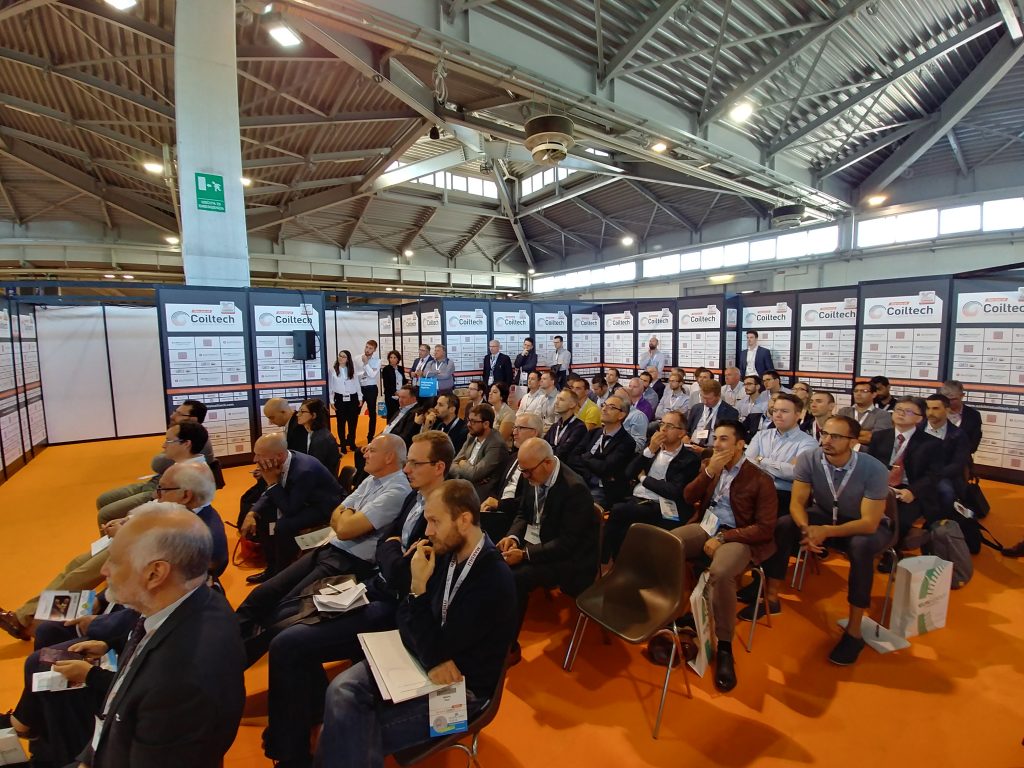
The Coiltech International Exhibition was a great opportunity, as it was possible to meet many of the exhibitors working on different electrical machine parts and supplies, and explore potential collaborations for the project future activities. Besides, having a project dissemination event in parallel enabled a very enthusiastic and interested audience, full of experts in the field, and many questions on ReFreeDrive project results.







